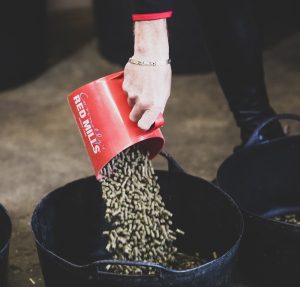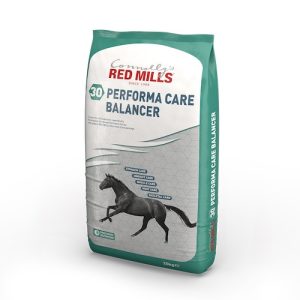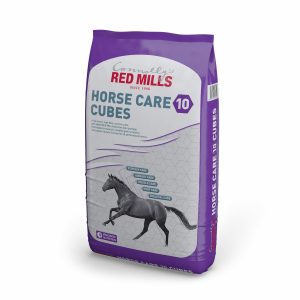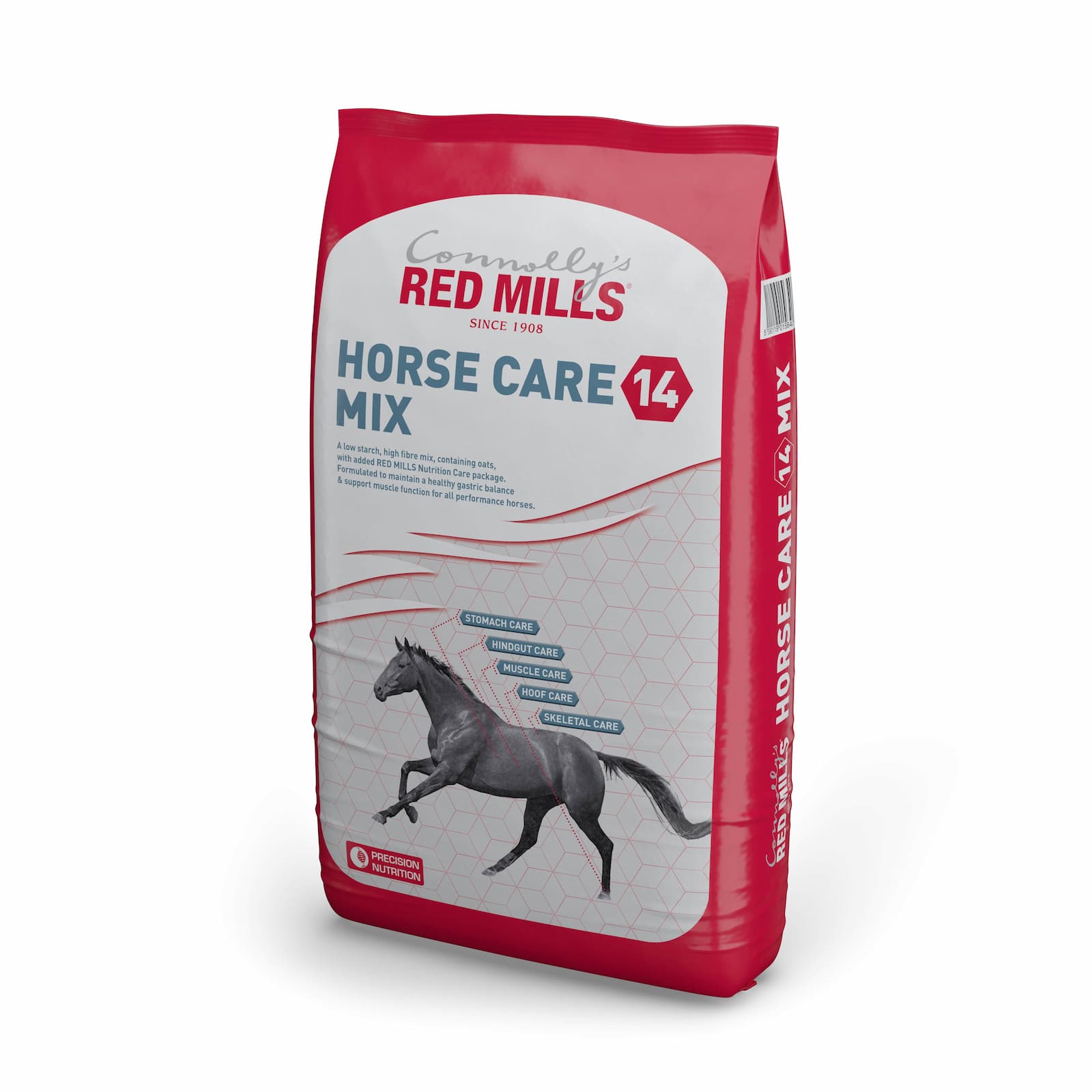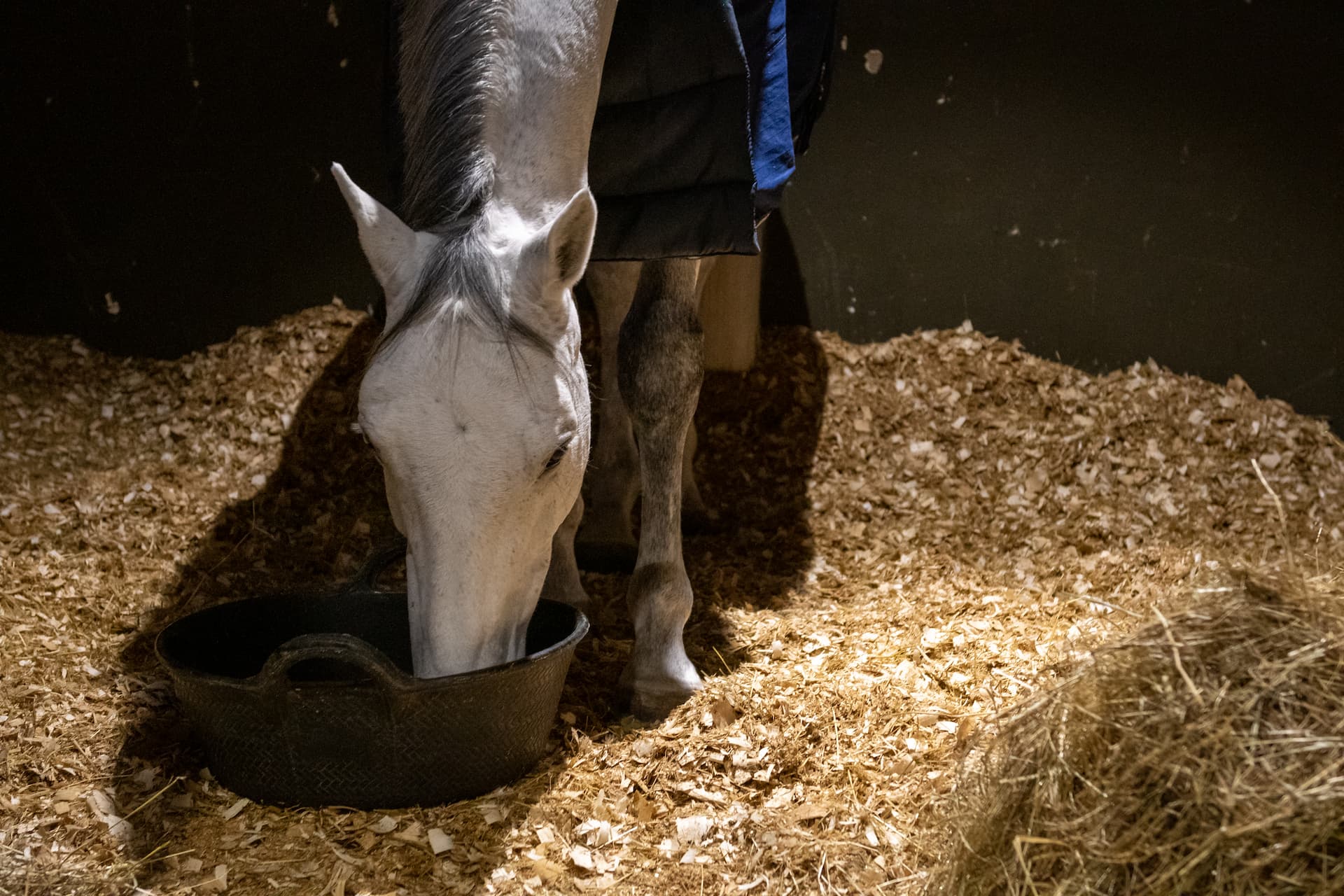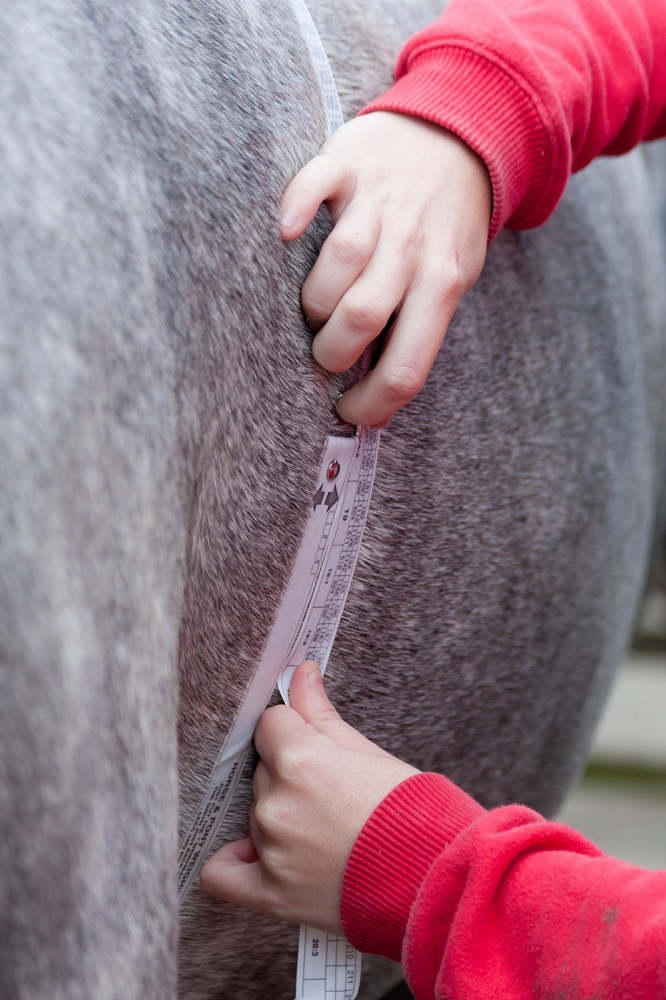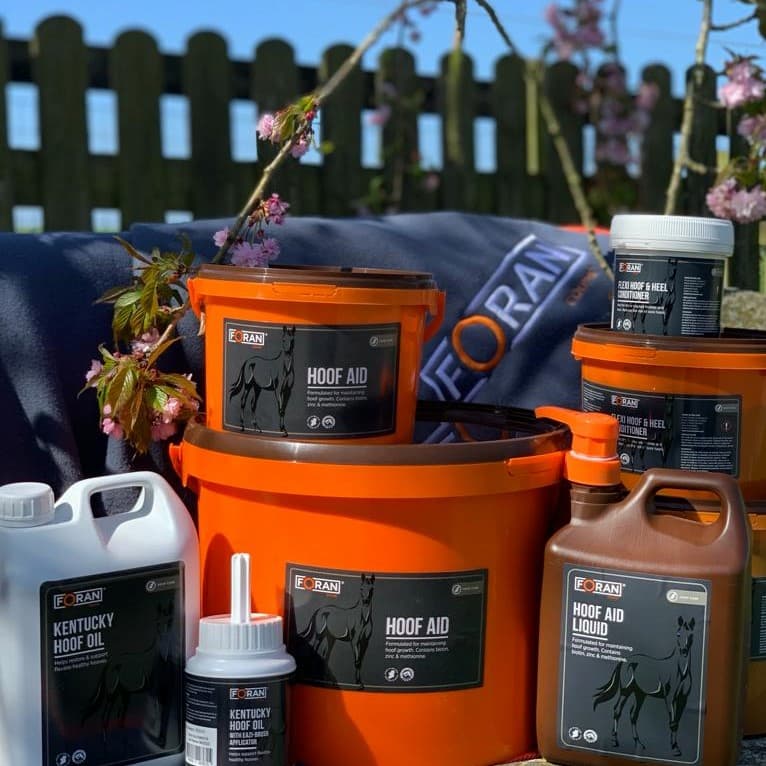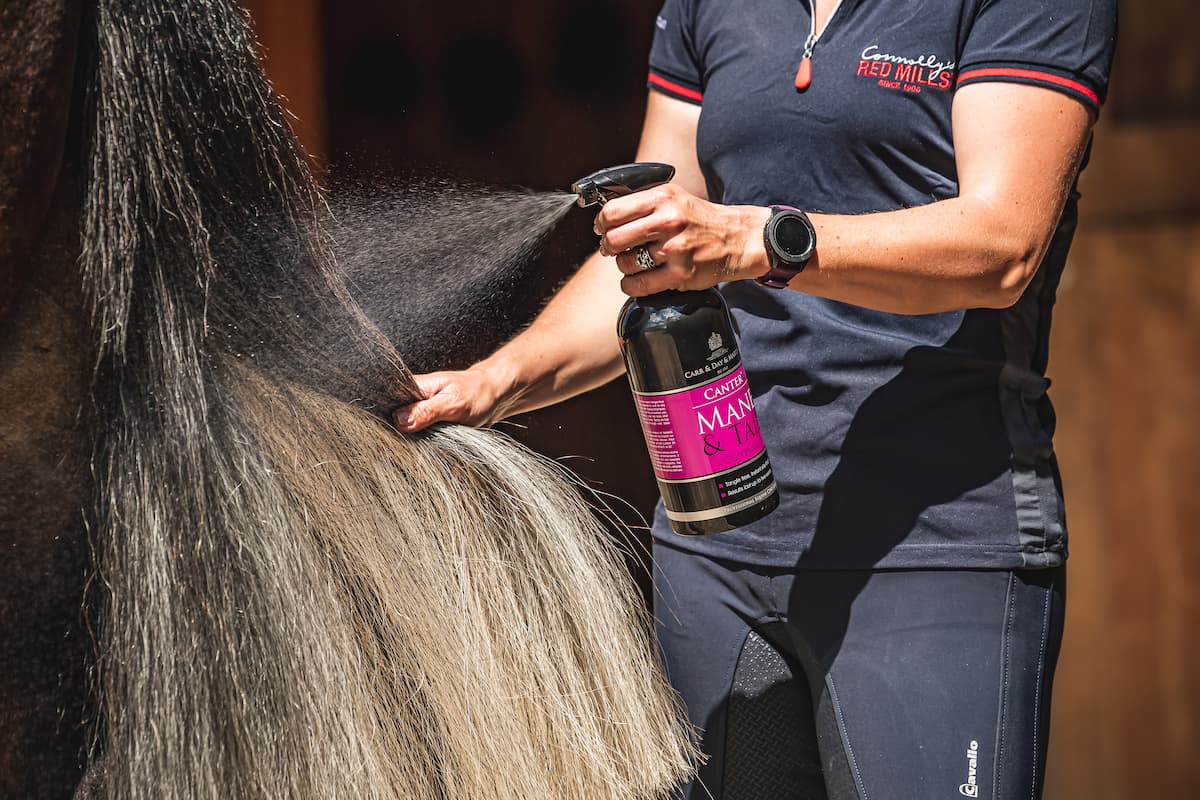Oct, 2019
Showjumpers require power, strength and speed. Although many factors, including genetics, fitness and training, can influence your horse’s performance, the correct nutritional support plays a major role in maximising their athletic potential. When considering how best to feed your horse, their age, workload, body condition score, temperament and health status should all be considered.
The most important part of your horse’s diet is forage; hay, haylage and grass. Ideally, forage should be offered on a ‘free-choice’ basis, allowing your horse access to roughage as needed. As a guideline you should be feeding at least 1.5% of bodyweight per day as forage on a dry matter basis, for example 7.5kg a day for a 500kg horse. This helps to regulate stomach acidity, promote digestive health, maintain a healthy hindgut and aid mental stimulation. Forage also provides a good source of ‘slow release’ energy, as beneficial microbes in the hindgut gradually ferment the fibre. Hindgut microbes are also involved in the production of B-vitamins, which play an important role in energy metabolism. Furthermore, the hindgut also acts as a fluid reservoir as each kilogram of forage holds 6-8 kg of water and electrolytes.
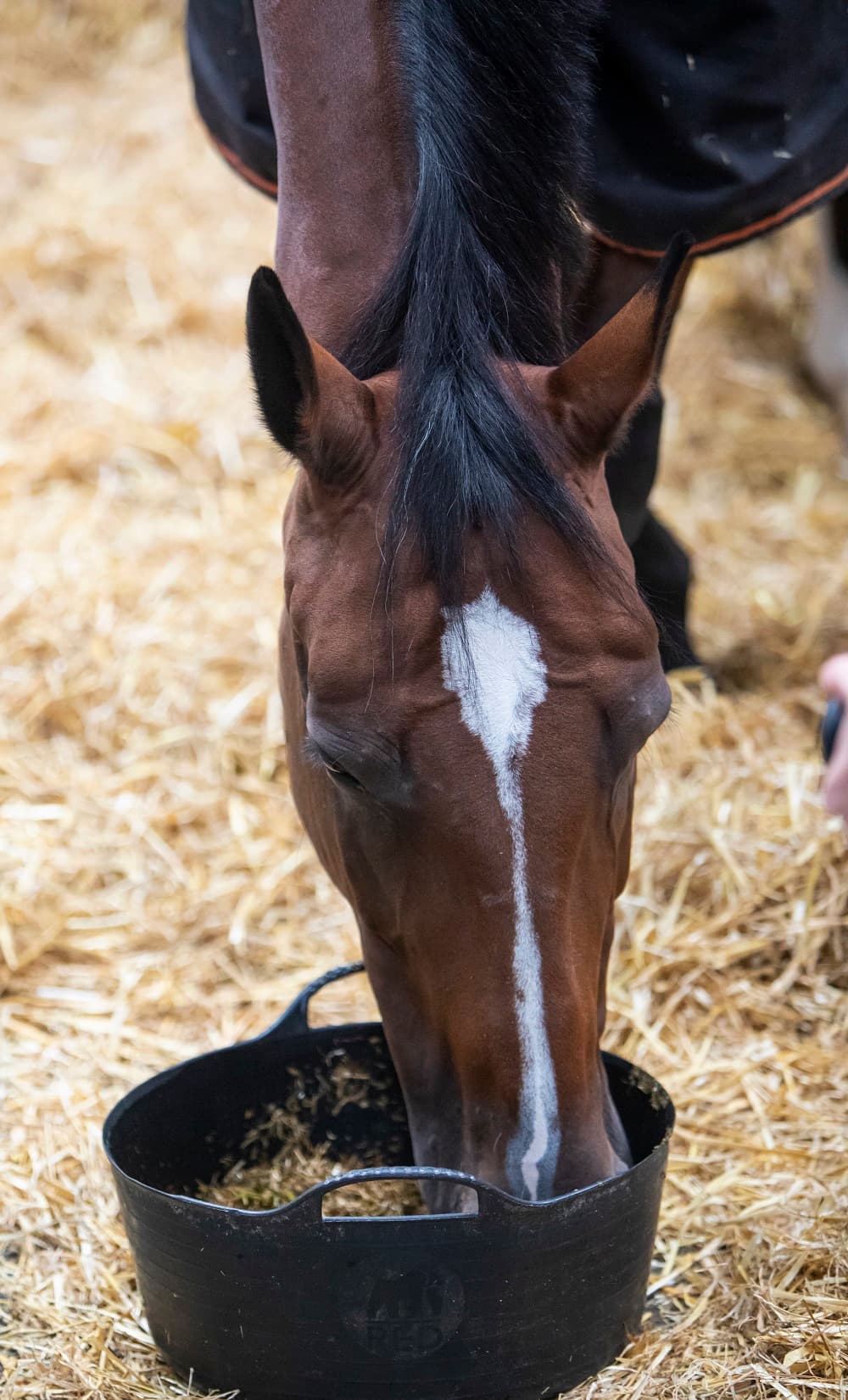
The physical demands of showjumping mean that the horse will require a hard feed but choosing which one can be a bit of a minefield. Feeding a suitable hard feed will ensure that your horse receives the energy, protein and micronutrients they need to perform. The most suitable feed will mainly depend on the level of work your horse is in and their temperament. While nutrition cannot change your horse’s underlying character, feeding the wrong type of energy can result in problems such as excitability, poor concentration or a feeling of lethargy.
Cereals such as oats, barley and maize are commonly known as ‘fast release’ energy source, as they are digested quite quickly in the small intestine. Cereal based feeds such as Connolly’s RED MILLS Competition 12 Cubes/ Mix are ideal for horses that compete in short, high intensity disciplines such as showjumping and those that are naturally quite laid back. However, for horses that tend to be overly excitable or those that suffer from tying up or gastric ulcers, a low starch feed will be more suitable. Connolly’s RED MILLS Horse Care 10 & 14 Cubes are specifically formulated to be a low starch feed, and instead provide energy from gradual or ‘slow-releasing’ energy sources. These include oil and highly digestible super fibres such as alfalfa, soya bean hulls and beet pulp. Horse Care 10 & 14 Cubes also contain the unique RED MILLS Nutrition Care package which includes a natural long-lasting gastric buffer, additional antioxidants, the prebiotics MOS & FOS plus yeast.
Another important major nutrient, although often over emphasised and misunderstood, is protein. Protein is essential for performance as it is needed to build and repair tissues including muscle. Protein is made up of essential and non-essential amino acids. The horse can synthesis non-essential amino acids in their body, however essential amino acids must be supplied in the diet. The quality of protein in the diet is extremely important; a lower quantity of high-quality protein feed can perform better than a low quality, high protein feed. Equally, oversupplying protein should be avoided, as this will lead to excess urine production, excess ammonia in the stable and inefficient heat removal. All Connolly’s RED MILLS feeds contain balanced levels of high-quality protein including good levels of the essential amino acids lysine and methionine.
Meeting the horse’s micronutrient requirement is also critical for performance. Vitamins and minerals are essential for many bodily functions including energy metabolism, bone strength and recovery.
Copper is required throughout the horse’s life as it is involved in tissue elasticity and it can also help with coat condition.
Vitamin E is an antioxidant which is particularly important for horses in higher levels of work as they help to neutralise the increased free radical production associated with exercise.
All Connolly’s RED MILLS feeds contain the RED MILLS Pro Balance vitamin and mineral package to ensure your horse receives all the essential micronutrients.
Regardless of the type of feed your horse is getting, keeping feed sizes small (2 kg or less for 500 kg horse) is important to optimise digestion and reduce the risk of digestive disorders. Most high-level performance horses that weigh 500kg will need at least 4-5 kg of hard feed per day, but this will depend largely on the individual and how much work they are doing.
If you find that your horse is maintaining sufficient body condition on less than the recommended amount of a feed, it is advisable to ‘top dress’ their ration with a performance balancer. This nutrient-dense balancer should provide optimal levels of key nutrients essential for performance whilst limiting calorie intake.
The majority of the horse’s nutritional needs will be provided from forage and a well-balanced hard feed. However, there are some circumstances where specific supplements can be enormously beneficial for performance and recovery. Supplements can help target specific issues such as poor appetite, hoof quality or respiratory issues and help support your horse give their best performance.
Two of the most commonly requested supplements for horses are electrolytes and joint supplements. Electrolytes are recommended for horses frequently undertaking high levels of exercise, regularly traveling or those that work in hot or humid conditions. Electrolytes help maintain fluid balance, promote faster rehydration, maintain appetite and improve muscle recovery. Foran Equine Equi-lyte G is an excellent electrolyte with added Vitamin C and E, which helps to support recovery. On competition days, Foran Equine Refuel Gel, which is available in a handy syringe, can be used to provide a concentrated source of electrolytes, plus vitamin C, E and B-vitamins to aid recovery and promote appetite. It is important to ensure that following electrolyte supplementation the horse has access to water to ensure optimal rehydration.
Showjumping places immense stress on the horse’s joints and over time this can result in problems such as arthritis. Maintaining joint health through supplementation not only can improve performance but it can also prolong the athletic life of the horse. Foran Equine’s Ost-O-Flex is a palatable, highly effective syrup, containing Glucosamine, a key component of cartilage, MSM to promote joint and ligament health as well as a bioavailable source of Calcium Chondroitin Sulphate, plus Hyaluronic Acid to help maintain join mobility and health.
Feeding the showjumper the optimal diet with the right balance of energy and micro nutrients is essential for performance. If you would like to discuss your individual horse’s feed and management in more detail get in touch with the Connolly’s RED MILLS nutrition team for expert and practical advice.
